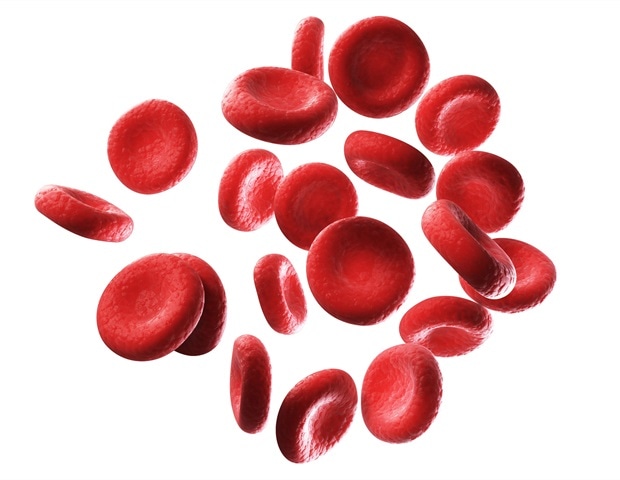Can Intermittent Fasting Reset Your Immune System?

31 December 2019, Hessen, Frankfurt/Main: A baking tray with filly sticks is placed in the display … [+]
I’ve written about fasting and its effects on health before. Six years ago, a study showed that a 3-day fast can essentially reset the immune system, providing many potential benefits. These benefits include better cardiovascular health, better endurance, lower blood pressure, and reduced inflammation.
Newer data, which I’ll get to in a minute, shows that you might not have to fast nearly that long to get these benefits.
In the 2014 study, Valter Longo and colleagues at USC found that fasting lowered white blood cell counts, which in turn triggered the immune system to start producing new white blood cells. White blood cells (or lymphocytes) are a key component of your body’s immune system. Once you start eating again, according to Longo, your stem cells kick back into high gear to replenish the cells that were recycled.
The idea behind this strategy is that you have to fast for several days to get the benefits: basically, you have to fully deplete your energy reserves (in the form of glycogen), and it takes your body at least 24 hours, and probably 48 hours or more, to do this. That’s the not-so-good news. The good news is that you probably only need to fast once or twice a year to gain the benefits that Longo described.
Last week, in a paper just published in the New England Journal of Medicine, Rafael de Cabo and Mark Mattson reviewed multiple strategies for fasting that have been tested in the years since Longo’s study. The news continues to be very encouraging: intermittent fasting is good for you. I don’t have time or space here to discuss all the results, but I want to focus on one fasting strategy that has surprisingly good benefits.
It turns out that you can get many of the benefits of fasting without doing a 3-day fast, which for most people is really, really difficult to accomplish. Instead, you can try a much easier type of fasting, called “time-restricted” fasting. With this strategy, you fast every day, by eating all of your food in a 6-hour or 8-hour window. Or you can go with the more difficult strategy (but still easier than a 3-day fast) where you fast for 2 entire days per week. Here, then, are two intermittent fasting strategies that have similar health benefits:
- Time-restricted: eat lunch starting at 12 noon, and finish dinner by 8:00pm. Fast until the next day at noon (16 hour fast). Do this every day.
- 5:2 fasting: fast for 2 different days each week, which means eating just 500-700 calories worth of food and drink on those days. Eat normally on the other 5 days.
The first strategy–a daily 16-hour fast–is the easiest, but its benefits might be equal to those of 5:2 fasting and the 3-day fast. (No study has directly compared these 3 fasting regimens.)
The benefits of intermittent fasting are numerous. As de Cabo and Mattson explain, they include
“[improvements in] blood pressure; resting heart rate; levels of HDL and LDL cholesterol, triglycerides, glucose, and insulin resistance…. In addition, intermittent fasting reduces markers of systemic inflammation and oxidative stress that are associated with atherosclerosis.”
Fasting also helps with weight loss, for obvious reasons. Cutting out all snacks in the evening, which is the biggest change imposed by time-restricted fasting, means not only a reduction in calories consumed, but also a reduction in the amount of highly processed (“junk”) foods in one’s diet as well.
Furthermore, because intermittent fasting reduces inflammation, it may also improve symptoms of arthritis and even rheumatoid arthritis.
Why does fasting work? It’s all about getting your body to switch over from glucose metabolism to ketone metabolism. Our usual 3-meal-a-day diet provides our body with a constant source of fuel in the form of glucose. Once that glucose is used up, though, our body switches to using fatty acids and ketone bodies. Ketone bodies provide more than fuel: as de Cabo and Mattson explain,
“Ketone bodies regulate the expression and activity of many proteins and molecules that are known to influence health and aging.”
Ketone metabolism seems to bring a host of health benefits. The trick is getting our bodies to switch over to it, now and then. If we eat constantly, then our bodies happily subsist on glucose and never make the switch.
Does fasting truly reset your immune system? Six years ago, I concluded that a 3-day fast does the trick, at least partially. The science suggests that, if you can do it, a prolonged fast for 2-3 days will induce your body to clean out some old immune cells and switch on production of new ones. Now we’re learning that intermittent fasting, which is easier to do, may work in much the same way, with multiple health benefits.
[Note: one of the authors of the NEJM study, Mark Mattson, is a Professor at Johns Hopkins School of Medicine, making him a colleague of mine. However, we are in different departments and we have never met.]
link






